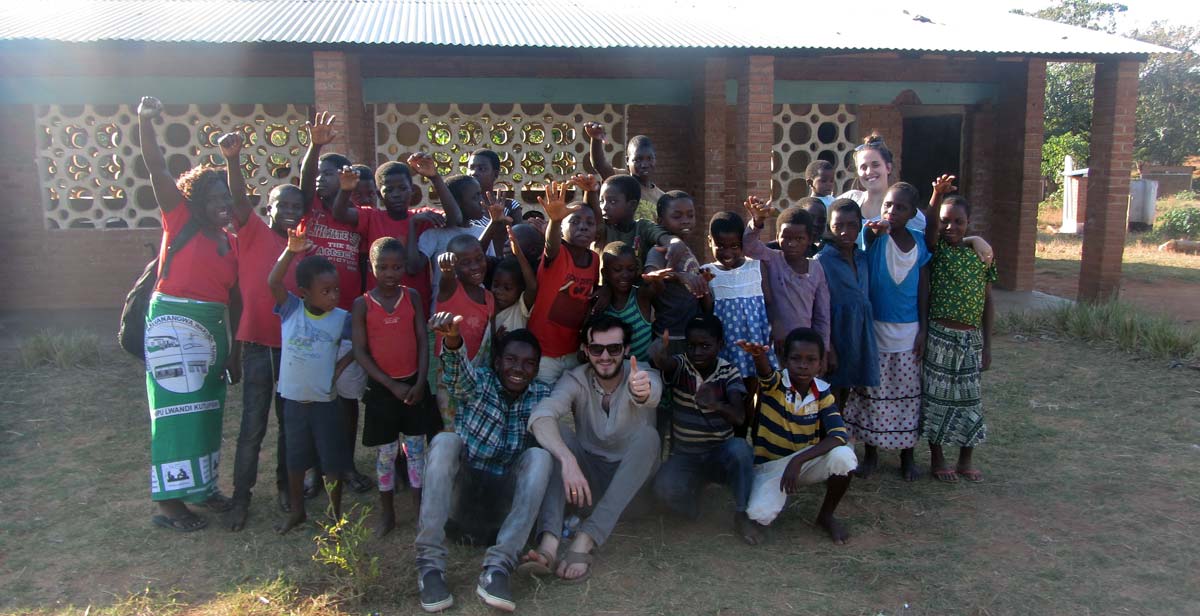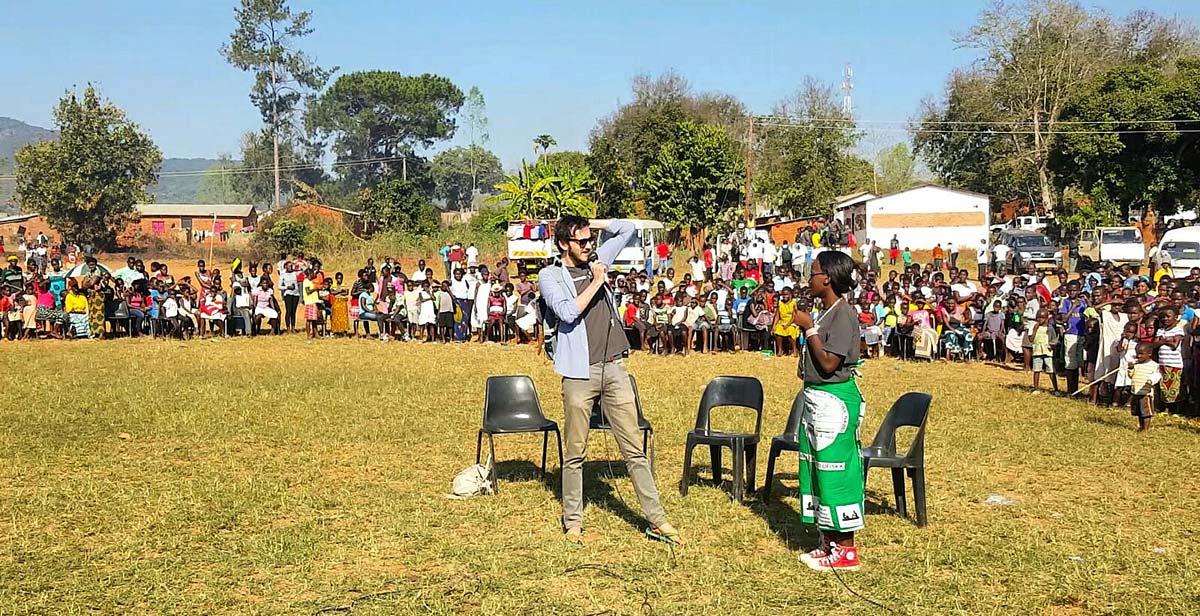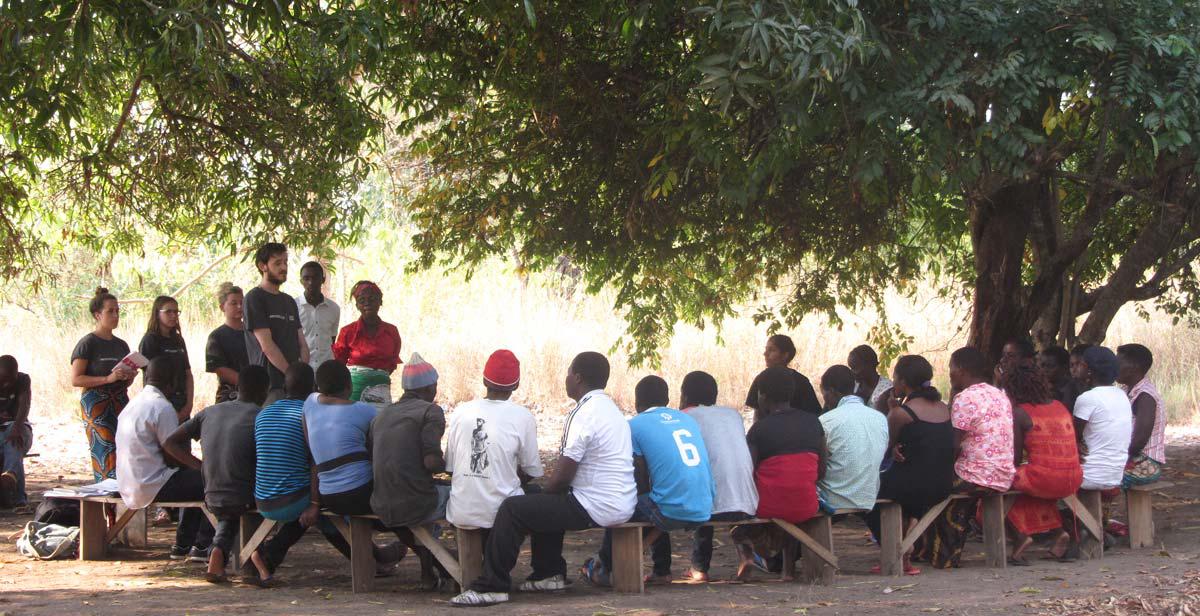With my 10-week placement in Malawi coming to a close, I felt this series of blogs needs to be wrapped up with a third and final piece. Going back a couple of weeks, I decided to base this blog series on the differences, which I have come to notice, between Malawi and the UK. This is what interested me the most because in my previous blogs I discussed differences between the UK and Malawi by identifying the varying perceptions which surround, for instance, time and appearance. It was strange and extremely enlightening for me (and I hope for you, the reader) to know that something such as time, a thing we often talk about, could be approached in a completely alien way. It has certainly expanded my perspective on how humans can view the world because of our diverse upbringings, culture and traditions. Sometimes I look back to a time before I left Wales, let alone the UK, relying on the internet and world news to enrich my knowledge about far flung nations and their people. While it certainly provided a sense of comfort thinking this was adequate information, it lacked all experience and that ‘hands-on’ approach, which I now request everyone to go out and get for themselves. Of course, travelling and volunteering won’t fundamentally change you as a person, but it does give you wisdom and a unique form of knowledge that helps you prioritise your thoughts and opinions about the world in which we all inhabit. On that note, I thought I’ll end on a blog about the contrary levels of our knowledge and information between the UK and Malawi.
Before I get into the thick of it, this blog will not be a question of intellect or wit, but merely access and exclusivity. Malawians and people from the UK are both human, we share the same potential and characteristics, but these simple observations are usually forgotten due to our diverse situations and cultures. I will always argue that it is our social diversity that impacts our attitudes, values and way of perceiving the world and the UK has the privilege of easily accessing knowledge and information that Malawian’s, particularly the people residing in the rural villages, lack.
We in the UK wake up and most of us have the morning rush to access Facebook, Twitter or the news. Social media has become one of the largest outlets of information in only the last decade; this isn’t directly what I want to tackle in this blog, but it does illustrate how easy it is for us to connect with the rest of the world, feeding on a never-ending pool of knowledge and information. However, easy access such as this remains isolated from the developing world and Malawi is no exception. Of course information is present in Malawi, but only for the very few. The people living in the villages and rural areas of the country have little money to afford 500mb of data let alone a £30 a month contract on a mobile phone. BT Fibre optic and the daily availability of a fast internet are things most Malawians couldn’t even conceive.

The Internet and social media aren’t the only forms of information but the ‘western world’ has become heavily dependent on these digital platforms; as for the rest of the world, they are struggling to keep up. Malawian’s still rely on paper, which often by the time it’s printed becomes out of date and the distribution of knowledge is slow because it is usually relayed on word of mouth, which is notoriously unreliable. This doesn’t mean that the UK system of teaching and knowledge sharing is any less reliable when talking about everyday life. We all have that one friend in the group who is famous for spreading absolute nonsense (if you’re thinking none of your friends fit the bill, then it’s probably you). However, we in the UK no longer rely on word of mouth to explain what happens in reality. Myths and legends have slowly been phased out due to efficiency of information and science. Having said that, it is practically impossible to stop anyone from spreading false truths, be it your friend who tells you having sex standing up means you won’t get pregnant, to the famous psychic who asks an Irish crowd have they ever lost a close family member called Mary. The latter is far worse than the former because it attracts millions of vulnerable people, and probably will never change. Regardless, the situation in Malawi possesses these sorts of myths and legends and what is considered true within the rural areas originates from traditional beliefs.
Everywhere has rumour and gossip but in countries such as Malawi there is little means of effectively countering misinformation. What is believed to be true is based on popularity and entrenched within tradition, something which I’ve experienced here in Nkhata Bay when people defend those traditions with the cliché ‘this is how it’s always been done’. Culture and tradition however are heavy obstacles to move and certainly within developmental programmes are often overlooked for this very reason; this does not mean that volunteering and foreign aid are fighting a never ending battle because as we know culture and tradition do eventually adapt. It’s not surprising however to hear from a UK volunteer that little progress leads to frustration, especially when working in awareness raising. Unfortunately, it is not the duty of ICS volunteers to involve themselves or attempt to challenge Malawian culture and tradition (even on subjects such as knowledge). For instance, it is still common, especially within the rural parts of Malawi, to believe in witchcraft; and often you will hear Malawians blaming many of their ills, from illness itself to death, on curses placed on them by those who practice witchcraft.
“I don’t think witchcraft is real, but it affects people’s minds out of fear and paranoia so witchcraft becomes a real thing for them” - Charles Salima, ICS Team Leader.

The gap of knowledge and information access between the UK and Malawi remains for many reasons. From the perspective of Malawians, it’s due to culture and tradition, but also priority. In the UK many of us have the privilege of an easy life compared to the everyday Malawian who is most likely farming or working in agriculture; these professions leave little time for education. On top of that, being a nation of extreme poverty, those who do go to school or university are constantly faced with difficult choices and events that can pull them back into a life of perpetual work and labour, for instance, young girls who become mothers very early and are forced to sacrifice their future goals to bring up their child. These situations exemplify the poverty on a structural scale whereby many Malawians are trapped in labouring jobs with little interest in change and progress. They seem to fail to see the bigger picture, not from any fault of their own, but because the country lacks the wealth in which to afford adequate facilities in which to teach the youth.
The deficit between adequate and affordable education is largely due to our different approaches to education systems. Where it is both compulsory for UK and Malawian children to go to school both at a primary and secondary level, it is only compulsory in a certain context for children and teens in Malawi to attend secondary school. They can choose to leave school if circumstances arise, such as teenage pregnancy or being unable to pay the fees. Parents understand that education is necessary for their children, but poverty means that other factors take priority. Apart from these types of issues the funding for education and schools is different to the UK. It is free for UK youth to learn at a primary and secondary school level, where in Malawi it is only primary school which is free. Secondary school requires the parents and family of the child to pay up front.
Malawi’s infrastructure still depends on foreign aid and charities such as our local partner organisation Youth Net and Counselling (YONECO) and ICS to fill in the gaps. Those heavy obstacles of culture and tradition make it difficult for organisations such as YONECO to raise awareness of why certain things happen and how to deal with them. It is much easier for a Malawian to blame sickness on witchcraft because it is familiar. The work of YONECO and the ICS volunteers will see little to no change in a couple of months or years. It will take a lot of time and patience. Awareness raising is dealing with the abstract, the unseen elements of societal development and clashes with the culture and traditional values of Malawians. There is only so much volunteering can achieve, but it’s not worthless. On an individual level, there is the possibility of change because you never know what the people you impart knowledge to will end up doing; and progress really does come from the most unlikely places. This is why it is important for developing countries to have full access, with the means to access the information and knowledge that the ‘West’ readily takes for granted.

There was an example in the United States on how knowledge is exclusive for some who can afford it. A computer hacker by the name of Aaron Swartz decided to tackle this access to knowledge. Internet sites such as JSTOR (an academic journal database) charge, otherwise broke students, hundreds of dollars a month to get access to what Swartz and many others consider to be public knowledge. Cut a long story short, Swartz was a member of MIT (Massachusetts Institute of Technology) who used their database, which had free access to JSTOR, to download hundreds of these academic journals and was investigated by the FBI for cyber-theft. If you haven’t heard of Swartz I recommend you watch the Netflix documentary on his life, it’s extremely enlightening.
Nevertheless, the principle behind why he did it is similar around the world but manifested in different forms. Knowledge is strictly guarded by those with the time, wealth and access. To solve this issue will take considerable cooperation from many different people, organisations and government officials. Knowledge and information and easy access to it should be public ownership and it should be universal! If developing nations have any chance at change, progress or sustainable futures they require adequate and up to date materials, not just wells and schools. Developing nations need to have access to new ideas in which to develop new systems to help their people overcome poverty and adversity.
This will be the last blog on cultural differences. I hope you have enjoyed reading them as much as I’ve enjoyed writing them.
A special acknowledgment to my fellow volunteers and friends Lauren Fox and Rachael Courtney. They sat with me and read through all my blogs, correcting, advising and discussing with me many of my points, observations and most importantly, grammar.
Written by ICS volunteer Calum Robert Mewett



